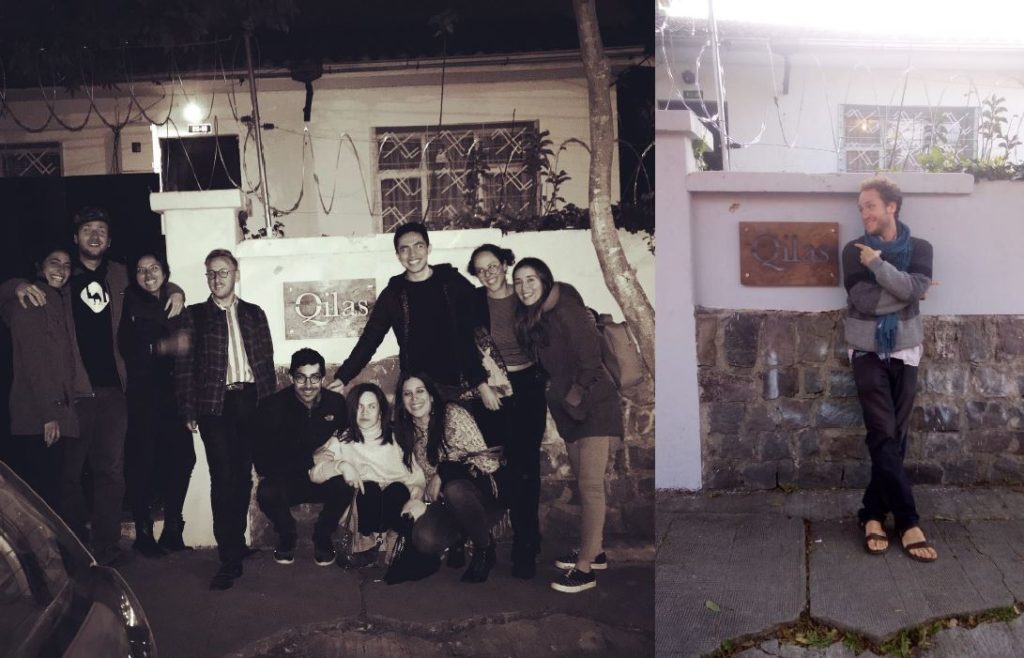By: Karim-Yassin Goessinger
“The IMF is utterly indifferent to the pain it’s causing” by Vihay Prashad of the Independent Media Institute
I arrived in Quito – in the northern Andes – on October 1st after a long journey from Cairo – from north Africa – via Paris, France. An old Egyptian-Ecuadorian friend called me upon arrival to invite me to a protest in front of a main government building along Avenida Amazonas after working hours. There was a small crowd raising their voices to speak out against a so called paquetazo which gradually I learned comprised a comprehensive structural adjustment programme of public services. The IMF is utterly indifferent to the pain it’s causing.
The purpose of my residency was to co-create a liberal arts focused space in the heart of Quito. After visiting CILAS (in Cairo) in 2016, Francisco, my host in Quito, expressed the wish to set up a liberal arts focused space. I visited him last year on a travel grant I had obtained through my affiliation with the Balaton Group to conduct a feasibility study for such an endeavor. Together we got a better sense of the legal requirements of setting up such a space, of the interest in such a space and of potential collaborations.
In the meantime, Francisco finished writing up his MA thesis in Philosophy of Education outlining his vision for QILAS and joined the global gathering of the Ecoversities Alliance, which gave us the opportunity to revise the project. QILAS has since gained visibility. Francisco has been offering a course on the Future of Education. Courses have unfolded through discussion around tea, especially so in the aftermath of the January 25th Egyptian revolution.
A friend of mine reminded me while I was in Quito of the following:
“We have to learn to trim down to more agile technologies and flexible policies and life ways so that, as a leaner techno-society, we can dance with Nature again. (..) I have heard that the Japanese have a saying, ‘the darkest place in the universe is at the base of a lighthouse.’ We are stuck now at the base of the lighthouse that the Industrial Revolution built, blinded by its light and unable to look elsewhere.”
– Jan Sendzimir
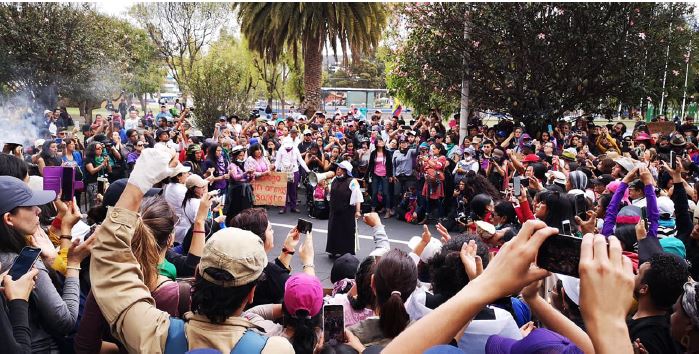
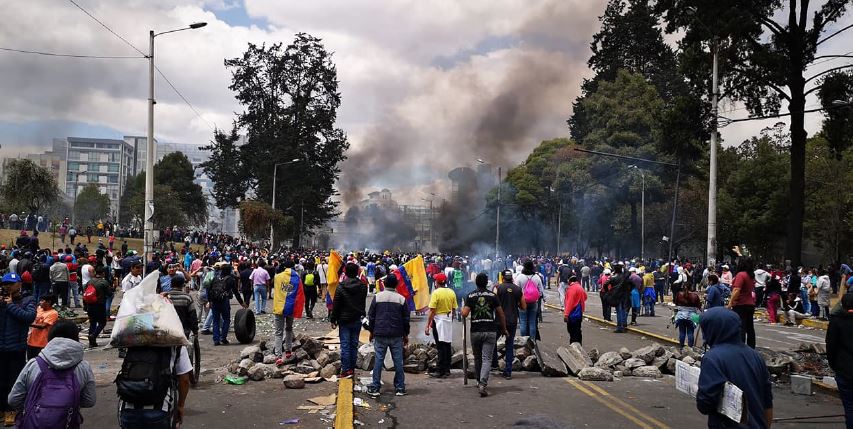
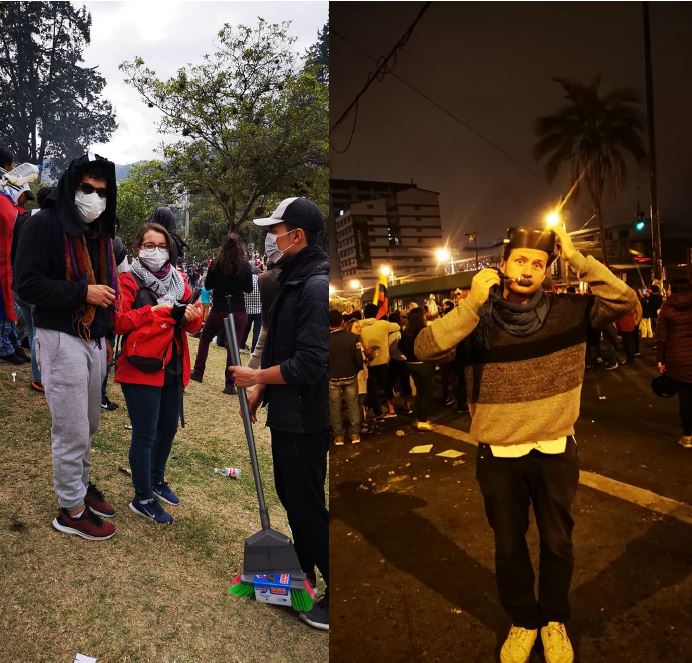
The second half of my stay with Qilas after the Association of Indigenous Groups had successfully negotiated that fuel subsidies not be removed were dedicated to curriculum design and pedagogy. In bi-weekly workshops based on readings I had circulated we came together on the terrace of Qilas, in the classrooms and in front of the fireplace. The discussions on curriculum design centered on the notion of Itinerant Curriculum Design borrowed from a recent compilation of essays edited by the Brazilian scholar Inês Barbosa de Oliveira called Boaventura and Education.
Recognising the struggle against epistemicide and the colonialities of being, power, and knowledge as our point of departure, we looked at non-Eurocentric epistemological frameworks. The intention for the workshops of that week was to engage in dialogue on epistemological dominance and to introduce a new language that would allow us to articulate and re-articulate meanings, through “endless and spaceless processes of coding, decoding, recoding, and ‘encoding” (Barbosa de Oliveira, 2019).
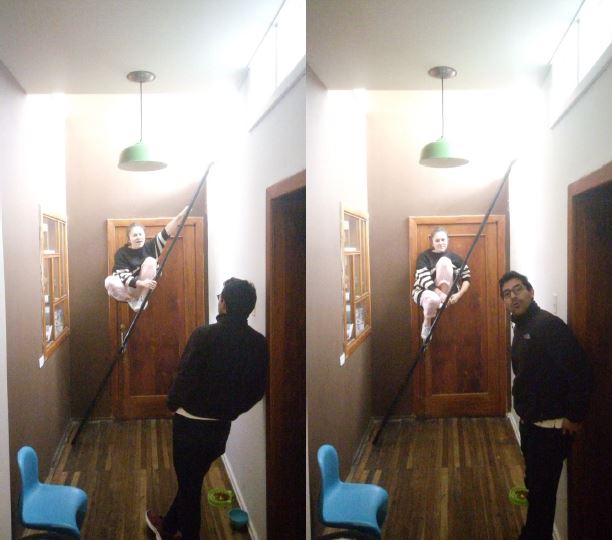
The last week of my stay at Qilas was dedicated to articulating a pedagogy. At CILAS back in 2012/2013 the decisive move was from operating under a pedagogy of consumption to operating under a pedagogy of discovery. The mission statement has since been ‘CILAS invites students from diverse socioeconomics backgrounds to engage with the liberal arts under a pedagogy of discovery’. With the QILAS team I shared the story of CILAS’ becoming in detail while highlighting shortcomings as I reflect on them.
At Qilas we considered operating under a pedagogy of attunement to go beyond what is known and what is knowable. The latter has been normalized through the Western Enlightenment, which is centered on the idea that being is about knowing (I think therefore I am) and that knowing is about meaning. Very rarely do we encounter institutionalized forms of education that explore the relationship we establish with knowledge, with knowledge production, with meaning making, and with what is unknowable and/or unimaginable.
A pedagogy of attunement assumes entanglement while insisting that entanglement is “not an intellectual choice, an allocation of will, an innocent space of virtue or beauty, a codified spirituality or a dialectical negation of separability” (Decolonial Futures Collective). Entanglement commands a different level of “impossible” responsibility for – everything, all the time. This responsibility is perhaps the reason why entanglement does not register in the frequency of rage, fear, control, vanity, righteousness, purity, sanctimony, or self-congratulatory avant-guardism.
A pedagogy of attunement invites us to experience that which exceeds what is intelligible, to imagine beyond categories of thought and affective entrapments, to acknowledge the inevitability of pain, death and (re)birth, and to “sit with” the passion and the pain of the world without the need for (dis-)identification. This involves looking in the mirror and not turning away when facing both the beauty and ugliness of humanity, our strengths and precariousness, gifts and manure, light and shadow, capacity for love and violence, and, crucially, our own arrogance and contradictions.
If we are indeed “entangled”, part of a wider metabolism and metaphysics that cannot be captured or fixed in meaning, the first thing we need to do is to figure out what creates the illusion of separability, numbing ourselves to our sense of connectedness with each other. This is counter-intuitive to our socialization in seeing meaning as a proxy for reality and the expectations that through meaning we can create unequivocal knowledge that will explain everything, fix everything, mediate our relationships, engineer the world, and give us a sense of hope, identity and purpose.
Rather than the traditional mode of education of filling a cup with more meaning/knowledge, this pedagogy is more about observing the cup, re-evaluating our identifications with it and experimenting with wordless knowing. The invitation is not to let go of meaning, knowledge or the cup, but to change our relationships with and expectations placed upon them. It invites us to take note of the usefulness of our intellectual “boxes”, our affective “safety blankets and the “sugar addictions” perceived as entitlements that distract us from a healthy co-existence and that have made the wider metabolism severely ill.
